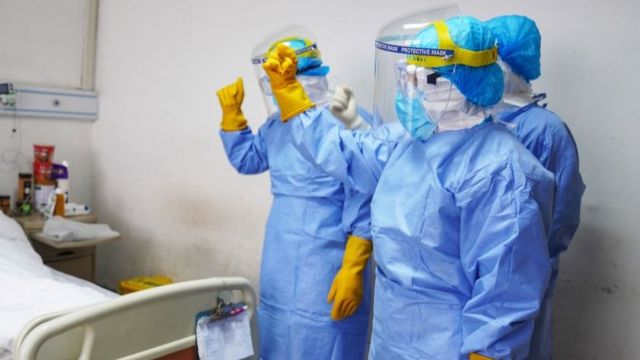Director General of the World Health Organisation (WHO), Tedros Ghebreyesus has disclosed that the COVID-19 pandemic will end when the world takes concerted steps to end it.
This was disclosed by the DG of WHO while speaking at the World Health Summit on Sunday.
According to Ghesbreyesus, the target to vaccinate 40 percent of the population of every country is achievable with cooperation.
He said the global health architecture must be improved in the areas of financing, systems, better governance, and strengthening the WHO.
“We are faced once again with some very big questions: some of the same ones we were asking in 2009 that remain unanswered, and some new ones. One of the questions I am asked most often is: when will the pandemic end? My answer is that the pandemic will end when the world chooses to end it. It’s in our hands,” he said.
“We have all the tools we need: effective public health tools, and effective medical tools. But the world has not used those tools well.
“With almost 50 thousand deaths a week, the pandemic is far from over – and that’s just the reported deaths.
“As you know, we have set a target to vaccinate 40% of the population of every country by the end of this year. That target is reachable, but only if the countries and companies that control supply match their statements with actions – right now.”
He said the 2019 Global Preparedness Monitoring Board (GPMB) warned that the world was unprepared months before the pandemic struck.
He said WHO’s global mandate has reduced due to a “debilitating imbalance between assessed contributions”.
“This imbalance distorts our budget and constrains our ability to deliver what our member states expect of us. Redressing it is vital if WHO is to be the independent and authoritative global health leader the world needs it to be,” he said.
“First, we must end this pandemic, by pulling out all the stops to reach our target of vaccinating 40% of the population of every country by the end of this year.
“Second, we must prevent the next pandemic, with better governance, financing, systems and tools, and by strengthening WHO.
“And third, all countries must invest in primary health care as the foundation of universal health coverage.
“The pandemic has demonstrated beyond doubt that health is not a luxury for the rich, or simply an outcome of development; it’s a fundamental human right, and the basis of social, economic and political stability.
“There’s only one way to achieve these three things – and that’s together. No country can end the pandemic in isolation from the rest of the world; and no country can protect the health of its own people without working to protect the health of all people.”
